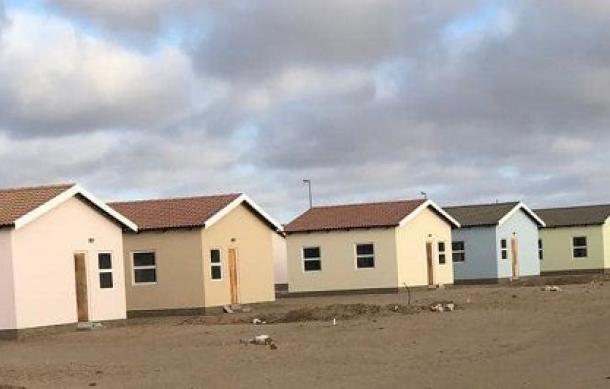
The Swakopmund Municipality has signed an agreement with the National Housing Enterprise (NHE) for housing provision.
Last year, about 805 residents from Swakopmund's DRC informal settlement received free plots from the municipality to construct brick houses and apply for electricity connections.
The agreement between the Swakopmund Municipality and NHE, which is fully funded by the Ministry of Urban and Rural Development, sees houses constructed for residents who earn as little as N$3,000 or less with NHE assistance.
The programme involves the conversion of shacks to permanent structures, complete with electricity and ablution facilities.
Launched in 2020, the programme is an approach to delivering affordable, decent houses for those with minimal income who live in shacks in the DRC informal settlement.
The land was serviced last year by the government.
Swakopmund Mayor Dina Namubes says the lack of decent housing is a national concern that needs strategic intervention.
Addressing the housing need should thus be a collective effort involving everyone, including street vendors, the security sector, elders, and people living with disabilities.
Equally, she stressed that banks should relax their collateral requirements to accommodate a larger portion of people.
"Ever since I was a student and stayed with my sister in her little home, where we had to sleep on the floor in the sitting room due to space constraints, I have always dreamed of owning a house. After much work and sacrifice, I was able to acquire my first property in Windhoek through the NHE. The house was beautifully designed and spacious enough for my family and me. Since then, I have been considering those who are sleeping outside in the cold and wind, and I hope that one day I might be able to help them. I have to use that story to draw a parallel between a real-world experience and a feeling that relates to the issue and challenges we are currently facing."
NHE Chief Executive Officer Gisbertus Mukulu said this was the company's first agreement and urged other town councils to join.
"The minority of people are not able to afford the houses. Can we come up with a specific programme and a house type that people can afford? So we come up with a design that does not have all the finishes that have been commented on in what we call the informal upgrading project? This house has bachelor flats. We have one bedroom and two bedrooms, but they do not have all the finishes."
The programme will commence as soon as funds, which are part of a budget set by the Ministry of Urban and Rural Development, are available.





